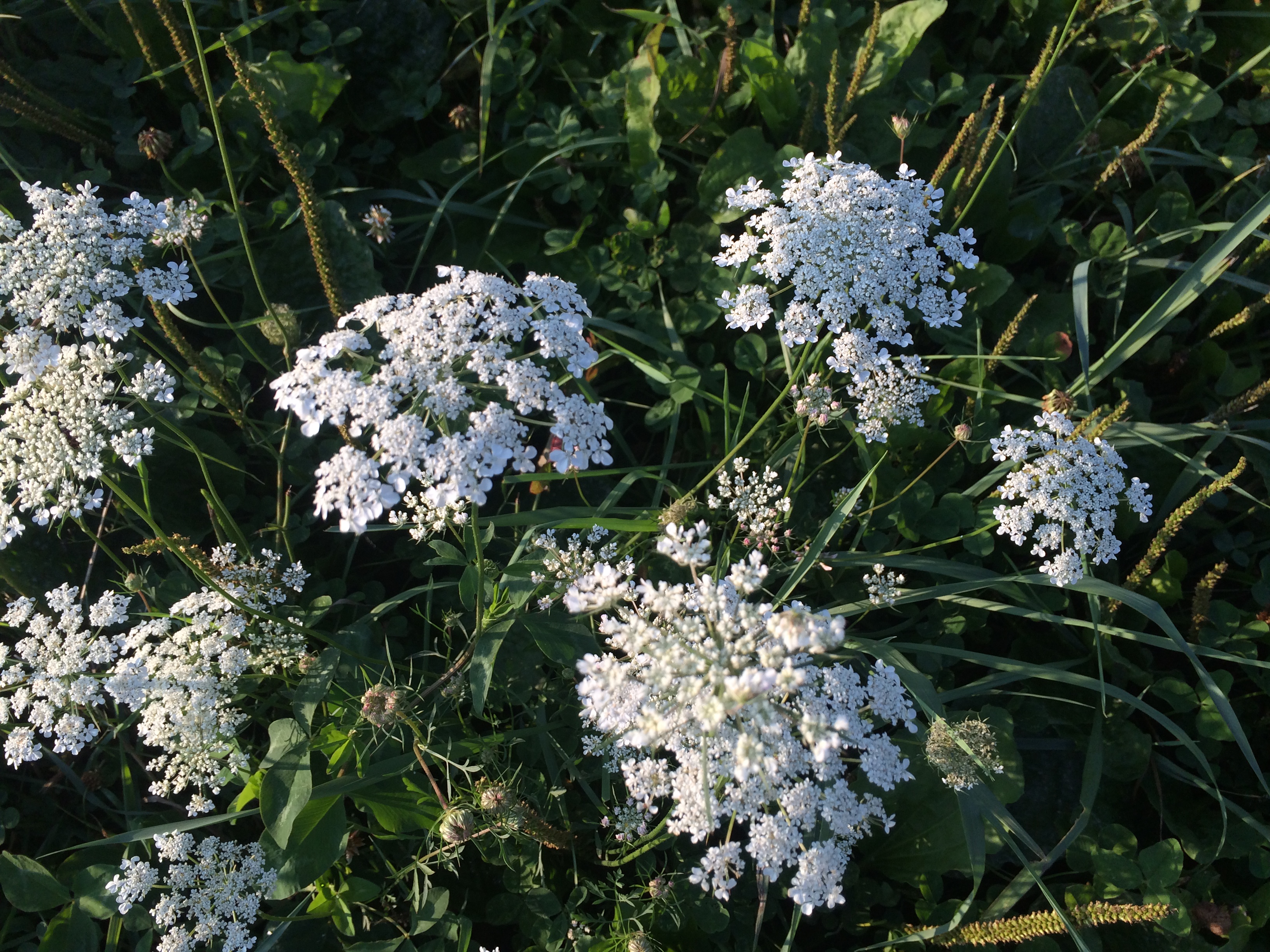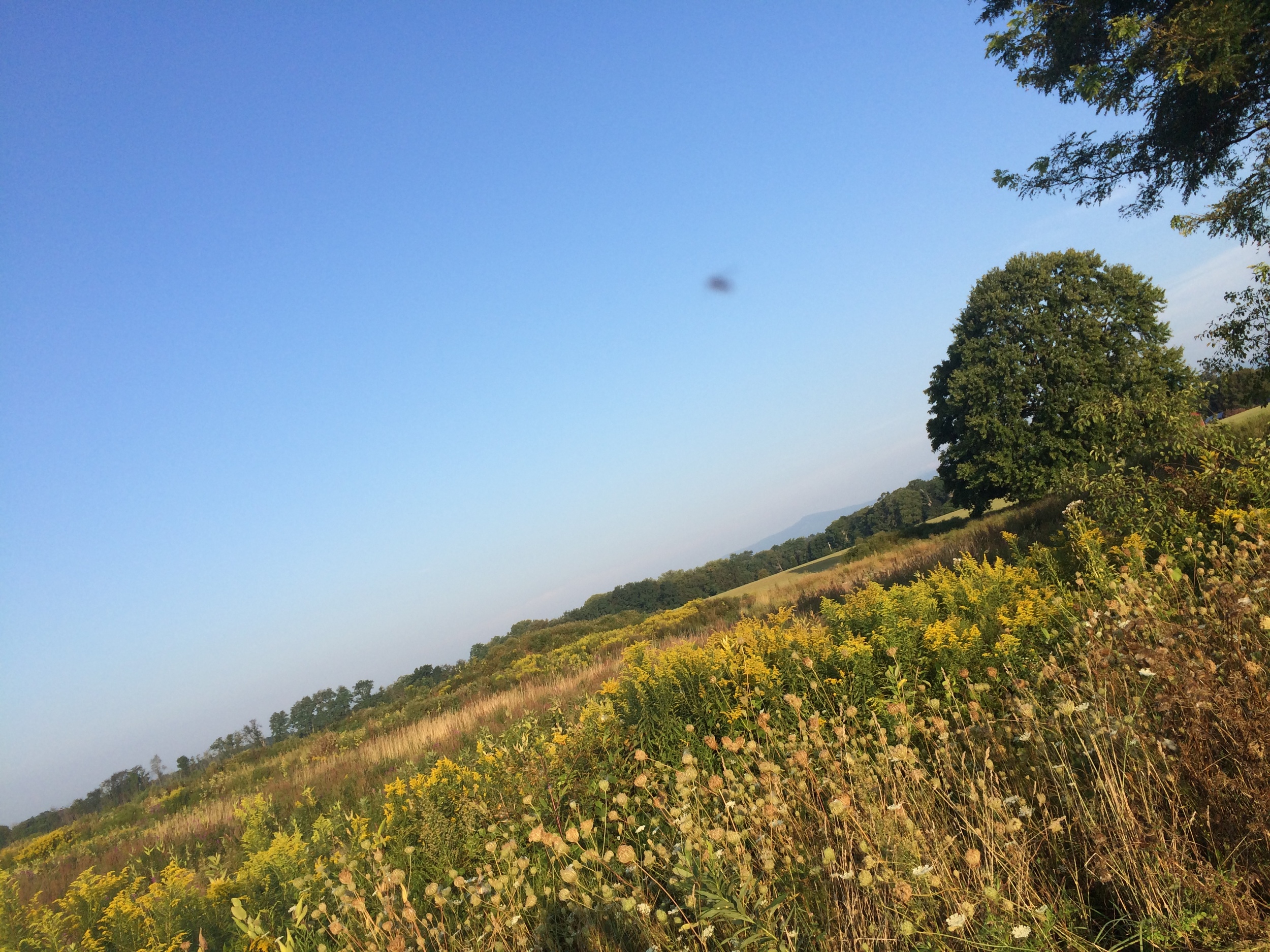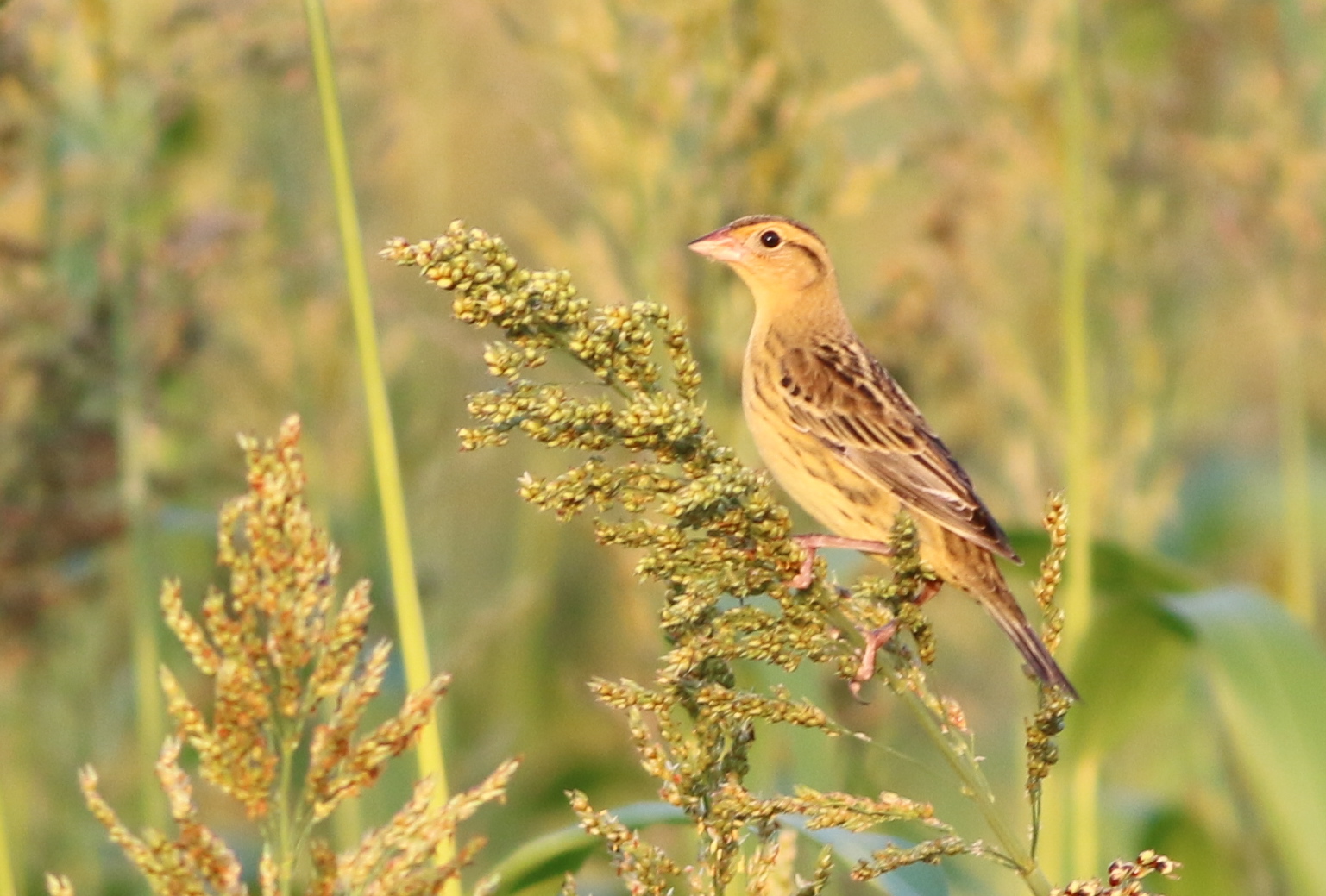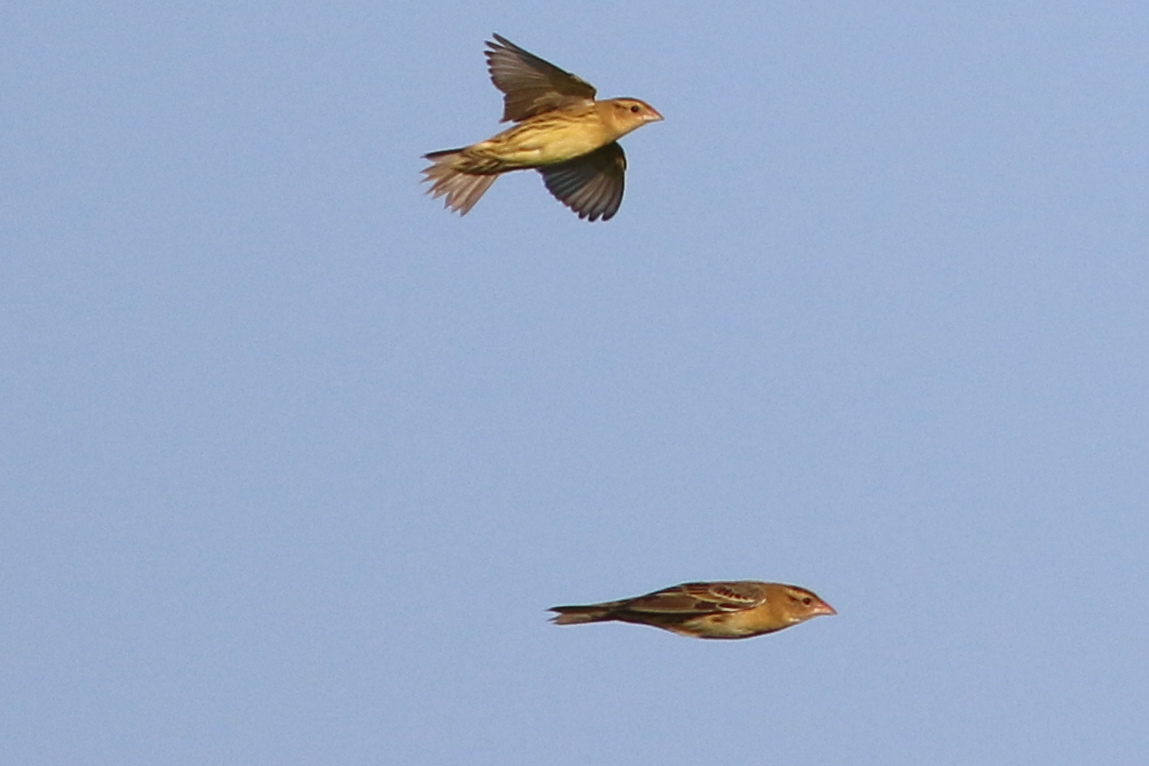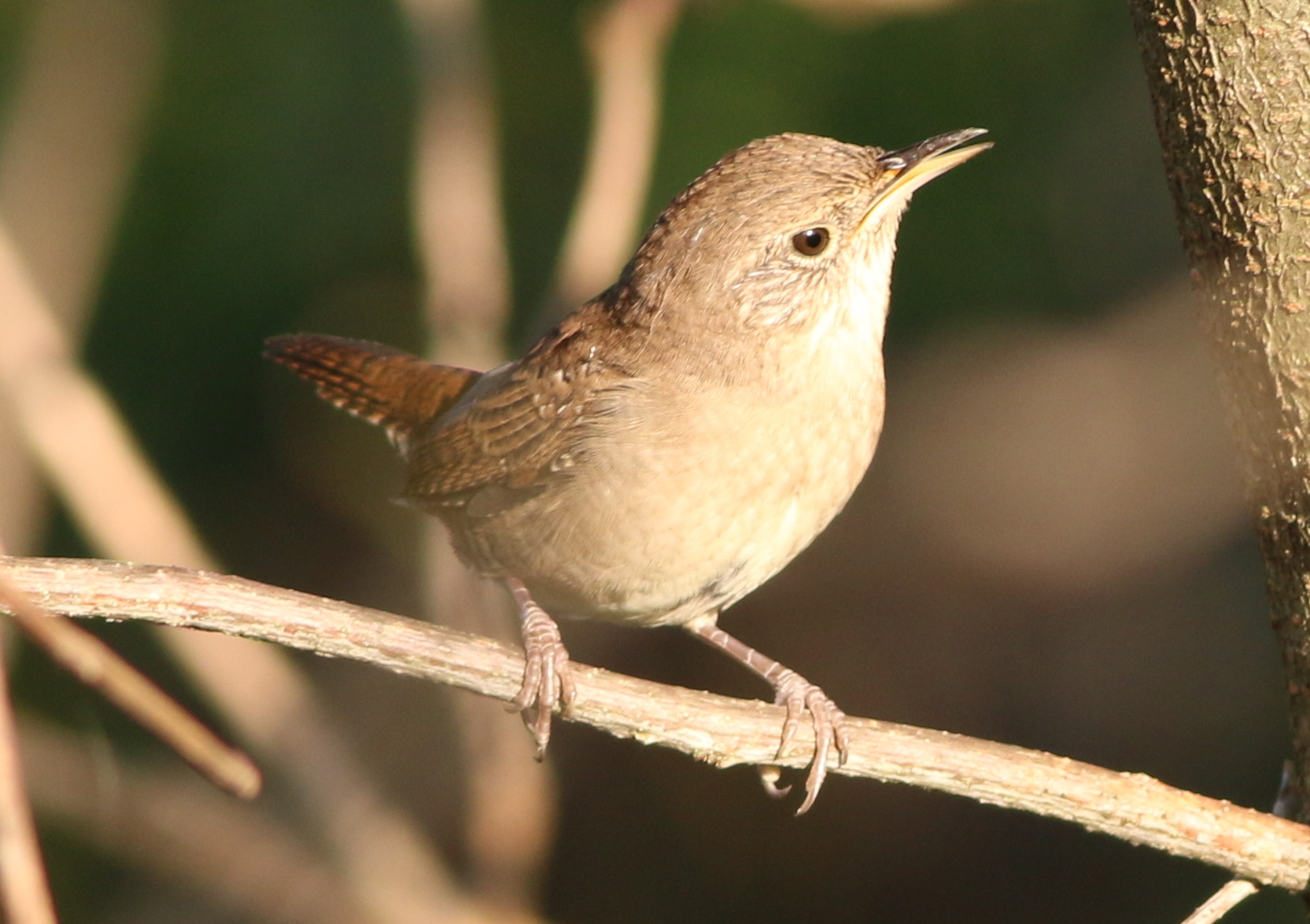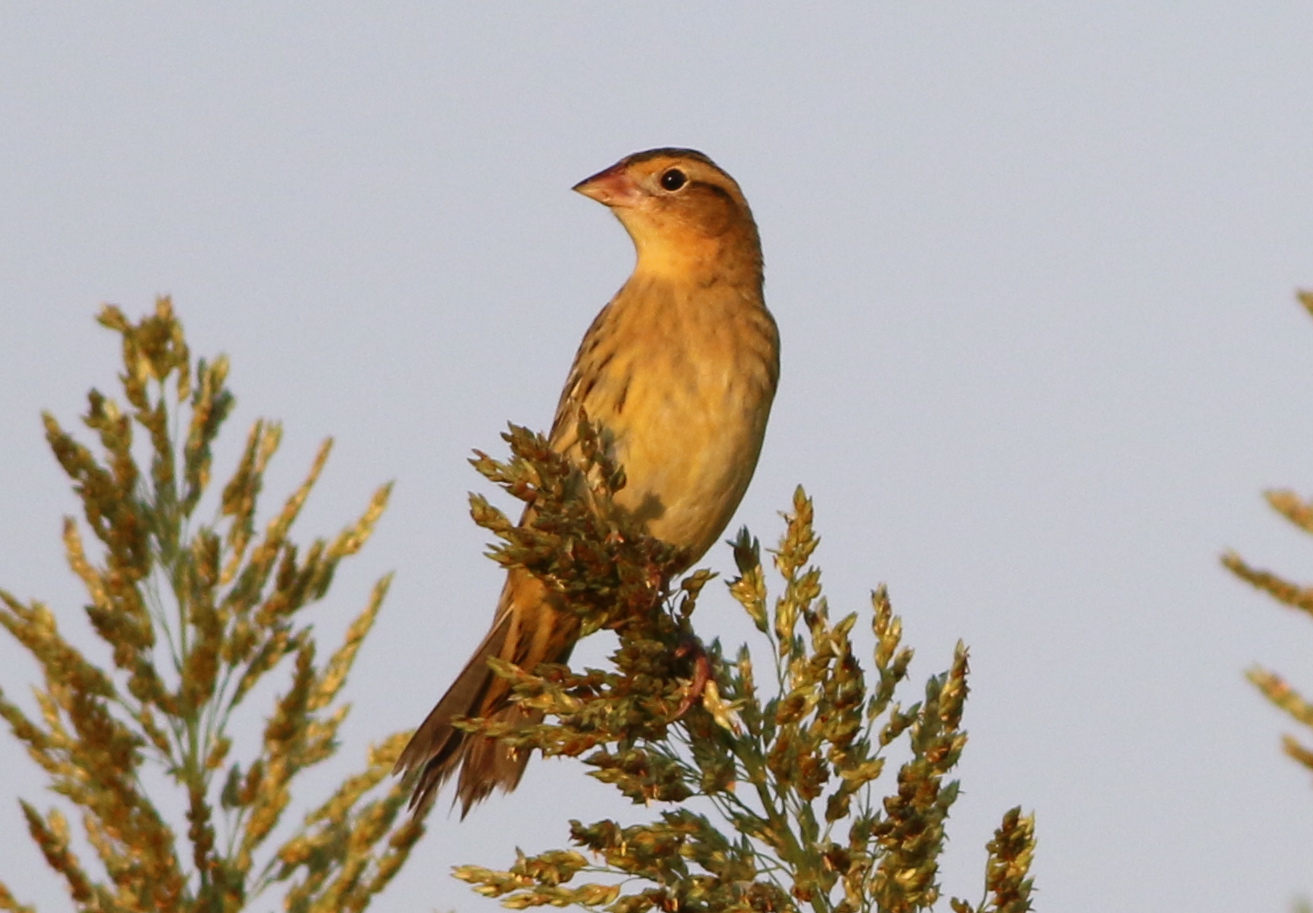I love the Thursday afternoons I spend working at Montgomery Place. Volunteers come to help maintain the historic gardens that I am in charge of, and my hours of solitude are broken up by lighthearted conversation. This Thursday, Amanda and I are pulling up myrtle and getting it ready for transplant as Peter races around trying to water the plants on the verge of dying from dehydration. The dirt that I kneel in is a fantastic, otherworldly realm. Earthworms longer than my fingers and almost as fat as my pinky nail pop up from the spaces vacated by the myrtle roots. I pull up bulbs that look like prehistoric teeth and brains. To my delight, I find a wooly bear to lace its way through my fingers. Such simple pleasures, and I love them.
Everything in this garden is so simple, in a way. It grows, it lives, and it dies. It occurs to me that despite the intricacies of an ecosystem, animals are so good at just living. In the simplicity of my tasks here-weeding, pruning, mulching, watching that the plants under my care are alright-, the stress of the complicated human world melts away. There is very little to worry about if I do not allow myself to spend time worrying. Spending time purposefully, knowing that I am doing what I am meant to be doing- I feel whole, here.
The leaves are beginning to change. I can smell autumn in the dark earth. Amanda tells me a story about growing up. She says that when she was a child, winter was always magical. But as she got older, something happened- and gradually, the snow lost its power. “There is a part in the literary version of Mary Poppins,” she recalls, “in which the children can hear the conversations of sparrows. They wonder why the adults stop listening, and promise that they will never, ever do such a thing. But sure enough, when they grow up, they too do not listen. I suppose that this is what happened to winter.”
It must be hard to lose the snow, to navigate the world between child and adult. I know that there is surely much to gain. But then surely there is something to be lost. I ask Amanda what she thinks she might have gained from the loss of winter magic. She cannot think of anything right away.
The next morning, I go to Grieg Farm at sunrise. Fog rolls across the fields as though the morning is laying out blankets. But the sun cuts through the trees to meet the fog, transforming it into mist that dissipates into nothingness.
There are fields of reeds that stand in the middle of the farm. They rustle and quiver. Tentative chirps reach my ears from within the stalks. A tiny bird pops out of the reeds and perches on the top end of one of the fluffy grasses. Its brown body is just heavy enough to make the tip bend, yet still so light that the reed dances in the light breeze.
The savannah sparrows are everywhere. The sun paints yellow streaks above their eyes. Slightly larger birds, completely covered in gold, burst out of the grasses like meerkats. One, two, three heads pop up, looking about inquisitively. The juvenile bobolinks watch me lurk closer, aware of my presence, but unlike the savannah sparrows they do not freak out right away. I can get close enough to see their bright pink beaks. Eventually, though, the proximity becomes too much, and the entire group scatters. As they merge into a flock, it looks as though some sort of cannon has shot a bunch of corn-on-the cobs into the air.
With the bobolinks gone, it is just the sparrows and myself standing there, watching one of them bob back and forth on its reed. Chirp, chirp. I remember Mary Poppins. What are they saying with those little calls? Chirp, chirp. If only I could truly understand what they say. Right now, all I can hear from their distinct call is their identity. If I venture a guess, perhaps they are alerting each other to a potential threat (me). I want to always listen to the conversations of birds. Listening to them and being able to know who they are is a familiarity that brings comfort. Though it may be a conceit, it makes me feel as though the natural world is speaking to me. It is magic. Simple magic.
Maybe it is not so much that people stop listening to the conversations of sparrows, or that we cannot understand what they are saying. Perhaps it is that as we grow older, it just cannot occur to us that those simple utterances- a chirp of alarm or recognition, a song to defend territory or attract a mate- are the things that really matter and are worth talking about. The things that are, after all of the thrills and frills of human society are boiled away, what really matters. Human conversation is complicated. I feel as though the more I learn and the older I get, the more this complication is expected. And then the day comes that the talk of a sparrow is just too simple to comprehend…
But not for me. I want to always listen to the conversations of sparrows. No matter what it takes, I will not let myself lose the ability to be wrapped within its wonderful magic.

